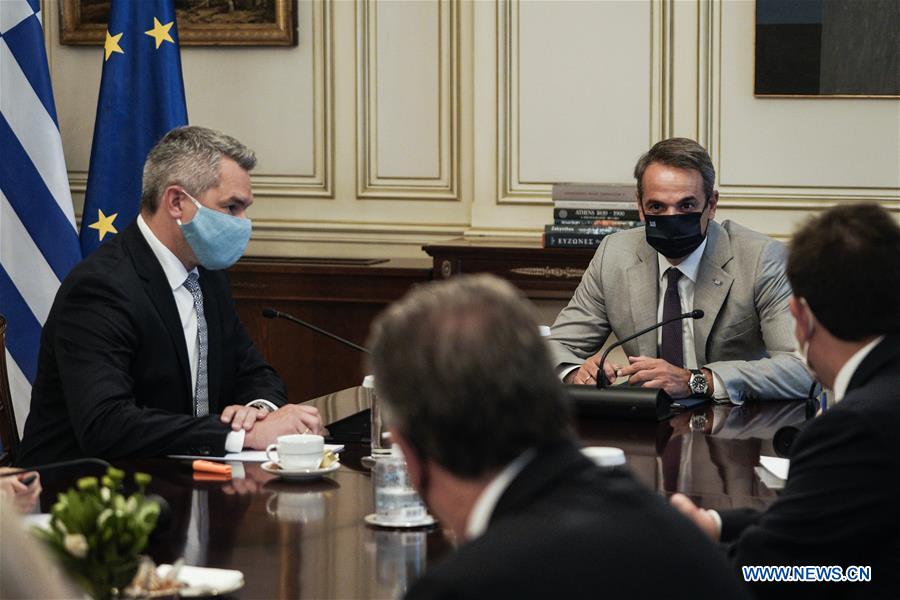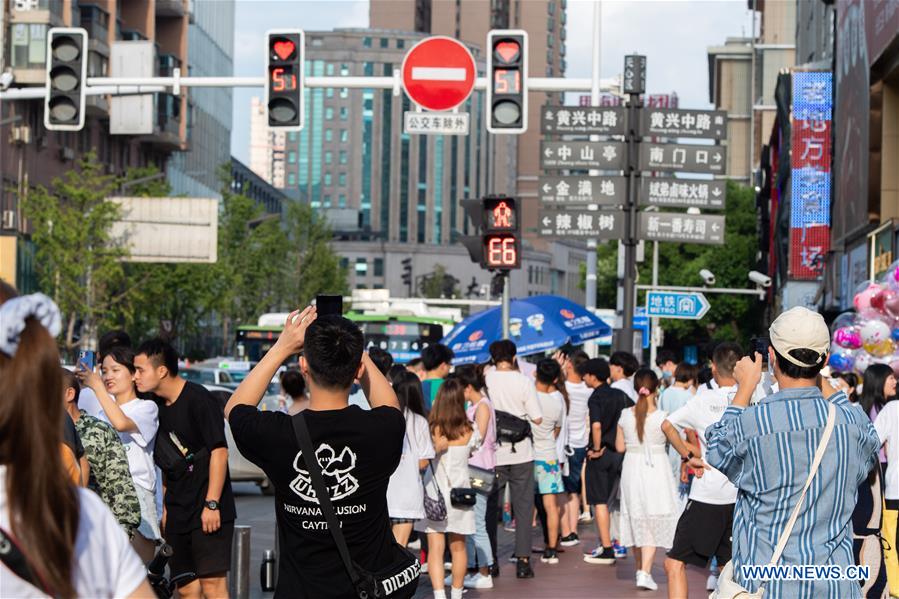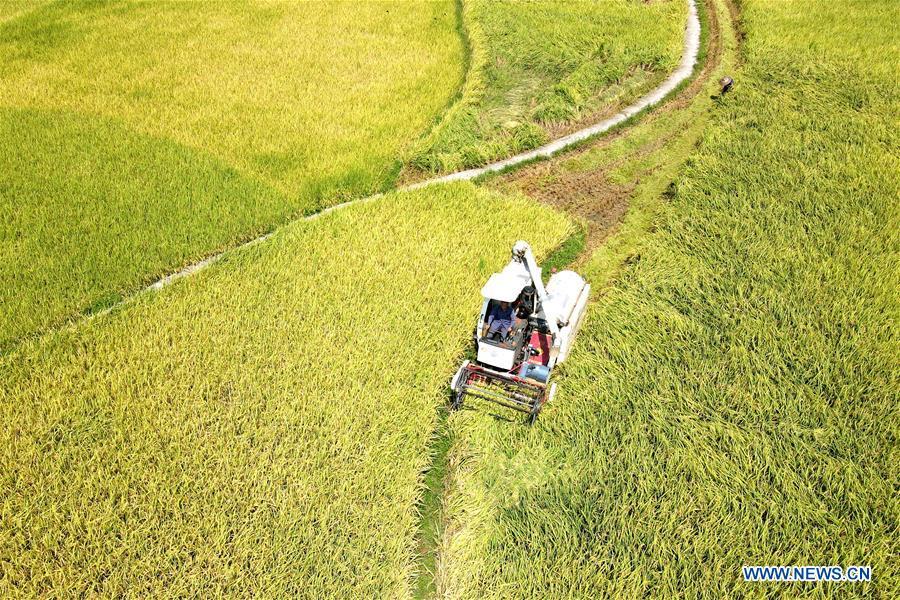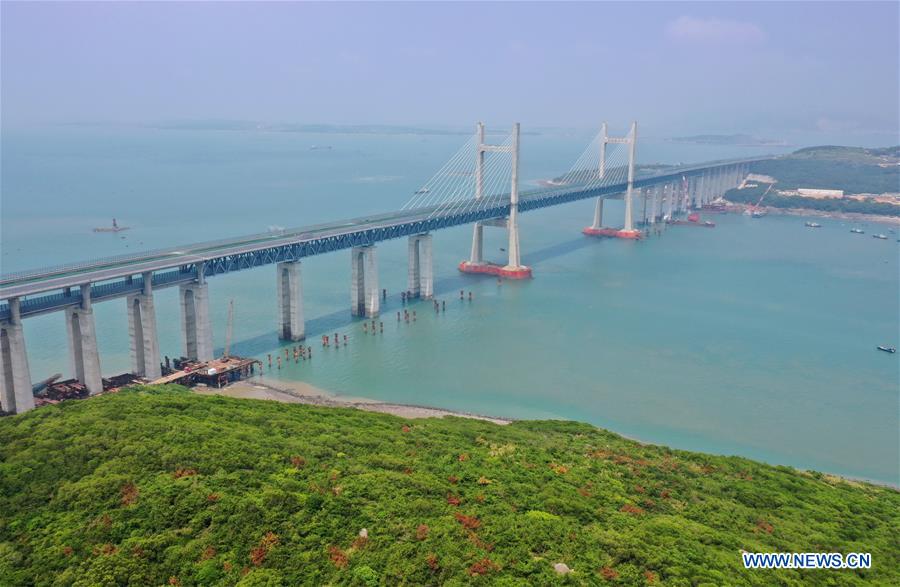
Greek Prime Minister Kyriakos Mitsotakis (rear) meets with Austrian Interior Minister Karl Nehammer (1st L) in Athens, Greece, on Aug. 25, 2020. Austrian Interior Minister Karl Nehammer on Tuesday expressed his confidence in the Greek government's handling of the migration issue during his meeting with Prime Minister Kyriakos Mitsotakis in Athens, said Greek government sources. (Photo by Nick Paleologos/Xinhua)
ATHENS, Aug. 25 -- Austrian Interior Minister Karl Nehammer on Tuesday expressed his confidence in the Greek government's handling of the migration issue during his meeting with Prime Minister Kyriakos Mitsotakis in Athens, said Greek government sources.
The discussion focused on the developments in the "explosive problem that threatens the Greek borders, which are also the borders of Europe" and Nehammer reaffirmed his country's readiness to further assist Greece in practice, the same sources said.
On his part, the Greek prime minister expressed the satisfaction of the Greek side for Austria's support in the European Union.
Nehammer's two-day visit to Greece came after a "coordination platform" for migration policy was set up in Vienna in July, aimed to make the measures of the EU and the Western Balkans more effective.
The platform will focus on coordinating cooperation in protecting the external borders, returning migrants without a right to asylum, fighting against smuggling, and establishing faster and more efficient asylum procedures.
The land border between Greece and Turkey in the north and the northeastern Aegean Sea islands have received the bulk of flows of migrants and refugees into Greece since 2015.
During the past five years, more than one million people reached Greece and most continued their journeys to other European countries until the winter of 2016, when borders along the Balkan route were sealed off.
Currently, Greece hosts about 100,000 asylum seekers, according to data provided by the Migration and Asylum Ministry earlier this August. Some 28,000 were currently hosted in overcrowded facilities on Greek islands and about 12,000 were transferred to the mainland since January to improve the living conditions, according to the ministry.













